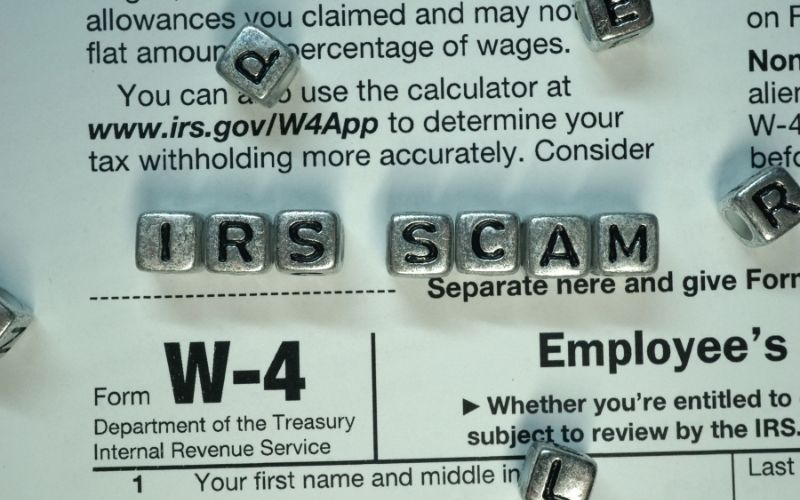Original Article | Live in Home Care
If you get a phone call, email, or a letter in the mail from someone you do not know announcing that you have won thousands of dollars or threatening you with jail if you do not pay a fine you do not owe, you are being targeted by scammers.
Consumer advocates and law enforcement officials continue to warn seniors to be on the lookout for scammers online, on the phone, and through the mail.
Adults over 60 lost nearly $1 billion to scams and frauds in 2020, according to the FBI’s Elder Fraud report. This represents an increase of $300 million in losses over those reported by victims over 60 in 2019.
The following are the top 5 scams that involve seniors:
1. Social Security Administration Imposter Scam
The Social Security Administration (SSA) Office of the Inspector General continues to receive reports about impostors pretending to be SSA employees.
Scammers know how to “spoof” official government numbers and may even use legitimate names and phone numbers of SSA employees to convince victims that they are from the SSA. The fraudsters also use robocalls to find their victims. Once someone answers the phone, the person may be told to “press 1” to speak to a government “support representative” for help in reactivating their Social Security number.
The victim then speaks to an imposter who falsely claims that the person’s Social Security number has been suspended because of a suspicious activity or it has been involved in a crime.
According to the SSA, you can tell if this is a scam if the imposter:
- Asks you to confirm your Social Security number or request sensitive personal information, like your bank account number.
- Threatens you with an arrest or legal action or tells you that your accounts will be seized or frozen if you do not immediately make a payment.
- Ask for payment by gift card, pre-paid debit card, or wire transfer.
The SSA wants the public to know that its employees do not threaten SSA beneficiaries. So, if you receive a suspicious call, the SSA says to hang up. And, if you answer the call, do not give the caller your personal information or money.
If you receive a suspicious call, report the scam at https://secure.ssa.gov/ipff/home
2. IRS Imposter Scam
The perpetrators in IRS scams use fake names and identification badge numbers and tell victims that they owe taxes and must pay immediately through a wire transfer or a gift card. The imposters threaten victims with arrest, deportation, or suspension of a business or driver’s license if they refuse to pay.
The IRS says not all scammers are based in the United States. So, they use U.S.-based “money mules,” who are people based in the United States who take payments from the victims and send the payments to the scammers in other countries.
If you believe you have been a victim of an IRS scam, call the IRS at 1-800-829-1040 or file a report with the Federal Trade Commission (FTC) at ftc.gov/complaint
3. Sweepstakes And Foreign Lottery Scams
You know it’s a scam if someone calls you or sends you a letter or an email saying that you have won a sweepstake or a foreign lottery that you never heard of and did not enter.
In these scams, the perpetrators may claim to be a lawyer, a U.S. customs official, or a lottery representative who tells victims that they have won thousands of dollars, a luxury vacation, or a car. However, the so-called winners must pay fees for shipping, insurance, customs duties, or taxes before they can claim their prizes. When victims follow the scammers’ directions for sending money, they receive nothing in return.
Legitimate lotteries or sweepstakes require you to purchase a ticket in order to participate. They also do not require you to send money to pay taxes or fees to claim your prize. What’s more, the FBI says that federal law prohibits the cross-border sale or purchase of lottery tickets from another country by phone or mail.
If you have been the victim of a sweepstakes or (foreign or domestic) lottery scam, file a report with the FTC at ReportFraud.ftc.gov
4. Tech Support Scams
If you receive a call or a pop-up Internet message allegedly from Microsoft or Apple about a virus found on your computer, do not believe it—especially if you do not have a computer.
Tech support scams involve fraudsters posing as representatives from well-known computer companies who are willing to get rid of a non-existent virus on your computer. The scammer will ask your permission to give them remote access to your computer. From there, they diagnose the phony threat and ask you to pay via a money transfer app or by wiring money, a gift card, a prepaid card, or cash reload card.
Scammers often contact their victims again claiming that they overpaid for the tech support services and are due a refund. They then ask to refund the money to the victim’s bank account or ask to receive gift cards to repay the money. According to the FTC, victims have lost hundreds and thousands of dollars to this refund scheme.
To report a tech support fraud, file a report with the FTC at ReportFraud.ftc.gov
5. Romance Scams
It’s not unusual for people to look for romance in online chat rooms, dating sites, and social networking sites. Unfortunately, scammers are in those rooms, too. The perpetrators create fake profiles, build online relationships, and over time, convince people to send them money. Some scammers go so far as to propose marriage in order to get money from victims hoping to find love online.
To avoid romance scams, the FBI recommends:
- Go slowly and ask lots of questions.
- Research the person’s photo and profile using online searches to see if the image, name, or details have been used in other places.
- Beware when the person seems “too perfect” or quickly asks you to leave a dating or social media site to communicate directly to you.
- Beware if the individual promises to meet you in person but then always comes up with an excuse why he or she cannot meet you. You should become suspicious if you have not met the person after a few months.
- Never send money to anyone you have only communicated with online or by phone.
- Stop all contact with the person immediately if you suspect your online relationship is a scam.
</ul.
If you are the victim of a romance scam, you can file a complaint with the FBI’s Internet Crime Complaint Center at https://www.ic3.gov/
Source Links
https://www.justice.gov/elderjustice/senior-scam-alert
https://www.scribd.com/document/512262400/2020-IC3ElderFraudReport#from_embed
https://www.consumer.ftc.gov/articles/how-spot-avoid-and-report-tech-support-scams











